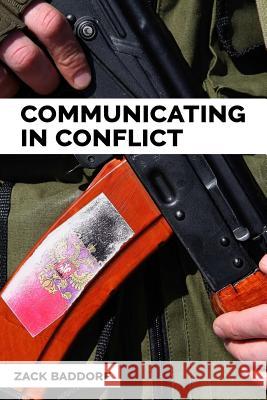communicating in conflict » książka
communicating in conflict
ISBN-13: 9781329522923 / Angielski / Miękka / 2015 / 80 str.
In conflict and post-conflict environments, international organization staff work and communicate with a variety of stakeholders: governments, militaries, international non-governmental organizations (INGOs), non-governmental organizations (NGOs), civil society organizations (CSOs), media, local nationals, and other audiences. Each of these stakeholders make decisions on, for example, provision of aid, military attacks, political demonstrations, and kidnappings. Effective communication on these issues and others can mean the difference between life and death for hundreds of thousands of people. Communicators working in challenging environments must be properly trained and prepared prior to their arrival. They also need to know how to protect themselves and their colleagues from physical risk. This book presents best practices learned by these professionals with decades of experience in the field and provides contemporary case studies of communication in current conflicts.
In conflict and post-conflict environments, international organization staff work and communicate with a variety of stakeholders: governments, militaries, international non-governmental organizations (INGOs), non-governmental organizations (NGOs), civil society organizations (CSOs), media, local nationals, and other audiences. Each of these stakeholders make decisions on, for example, provision of aid, military attacks, political demonstrations, and kidnappings. Effective communication on these issues and others can mean the difference between life and death for hundreds of thousands of people. Communicators working in challenging environments must be properly trained and prepared prior to their arrival. They also need to know how to protect themselves and their colleagues from physical risk.This book presents best practices learned by these professionals with decades of experience in the field and provides contemporary case studies of communication in current conflicts.











